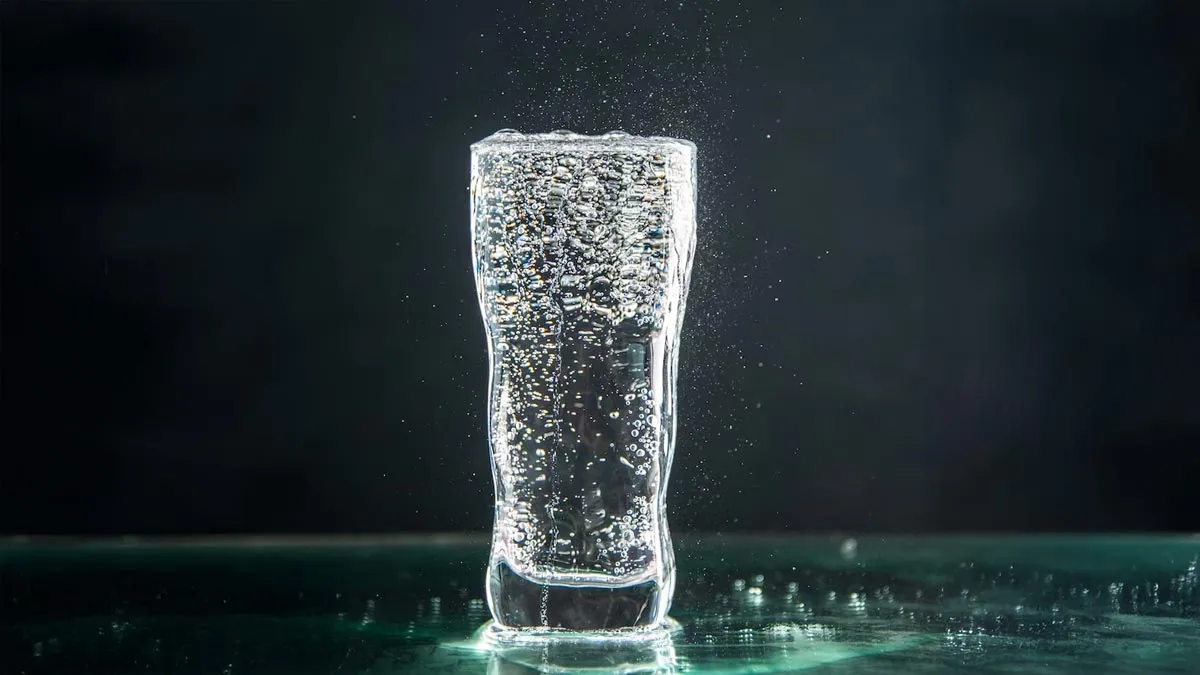
Have you ever wondered if swapping your regular drink for sparkling water could help with weight loss? With its refreshing fizz and zero calories, it seems like a smart choice, especially for those trying to cut back on sugary sodas. But does it make a difference, or is it just another health trend? We spoke to Dr Archana Batra, a Dietician and a Certified Diabetes Educator, Gurugram, who explained the benefits of sparkling water and if sparkling water can support your weight loss journey.
Table of Content:-
Benefits of Sparkling Water
1. Increased Fullness

Did you know carbonation can create a feeling of fullness in your stomach? This may lead to reduced food intake and lower overall calorie consumption. When consumed before or during meals, it may reduce food intake, leading to lower overall calorie consumption," said Dr Batra.
2. Improved Digestion
Another benefit of carbonated water is that it may aid digestion by stimulating gut motility. Better digestion contributes to overall health and may indirectly support weight management. The mild stimulation of the digestive system may help relieve symptoms of indigestion and constipation, promoting a more efficient digestive process.
3. Hydration
"Like still water, sparkling water keeps you hydrated. Hydration is necessary for several bodily functions, including metabolism," added Dr Batra. Many people struggle to drink enough water throughout the day, so having a fizzy, flavourful option might encourage better hydration habits.
Also Read: Still Or Sparkling Water: What’s The Difference and Does It Matter For Health?
The Science Behind It

A recent study published in BMJ Nutrition, Prevention and Health in January 2025 has shed new light on this topic. It was found that the CO2 in carbonated water may enhance glucose uptake and metabolism in red blood cells. This process involves the conversion of CO2 to bicarbonate (HCO3), which could potentially boost energy production.
The Reality Check
- Not a Magic Solution: Sparkling water alone is unlikely to lead to significant weight loss.
- Part of a Broader Strategy: Sparkling water should be incorporated into a comprehensive approach to healthy living, including a balanced diet and regular exercise.
- Better Than Sugary Drinks: If you’re replacing sugary sodas, juices, or calorie-heavy beverages with sparkling water, you’re likely to see positive changes in weight management.
Potential Drawbacks
It's also worth considering some potential downsides of excessive sparkling water consumption:

- Dental Health: A 2017 study revealed that carbonated water can wear away tooth enamel. The more carbonation in the water, the greater the erosion of enamel. To minimise risk, consider drinking sparkling water with meals or using a straw to reduce direct contact with teeth.
- Bloating and Gas: Some people may experience discomfort due to the carbonation. According to the World Journal of Gastroenterology, drinking carbonated water may worsen Irritable Bowel Syndrome (IBS) symptoms, even though it doesn't cause the condition.
Also Read: Struggling To Drink Enough Water? Here's How To Make Sure You Have More
Things You Should Know
While sparkling water may offer some benefits that could indirectly support weight loss efforts, it's not a miracle solution. Here's what you should keep in mind:
- Hydration Alternative: Sparkling water can be an effective, calorie-free way to stay hydrated, especially for those who find plain water boring.
- Soda Replacement: It's an excellent substitute for high-calorie, sugary drinks.
- Mindful Consumption: You should pay attention to how your body responds to carbonation.
- Holistic Approach: Focus on a balanced diet, regular exercise, and an overall healthy lifestyle for effective weight management.
Bottomline
Dr Batra concluded, "While sparkling water can be a helpful addition to a weight loss plan, it's not a standalone solution. Enjoy it as part of a well-rounded approach to health and hydration, but don't expect it to be the key to shedding pounds. Whenever making dietary changes, you should consult a healthcare professional or registered dietitian for personalised advice."
[Disclaimer: This article contains information provided by an expert and is for informational purposes only. Hence, we advise you to consult your professional if you are dealing with any health issue to avoid complications.]
Also watch this video
How we keep this article up to date:
We work with experts and keep a close eye on the latest in health and wellness. Whenever there is a new research or helpful information, we update our articles with accurate and useful advice.
Current Version